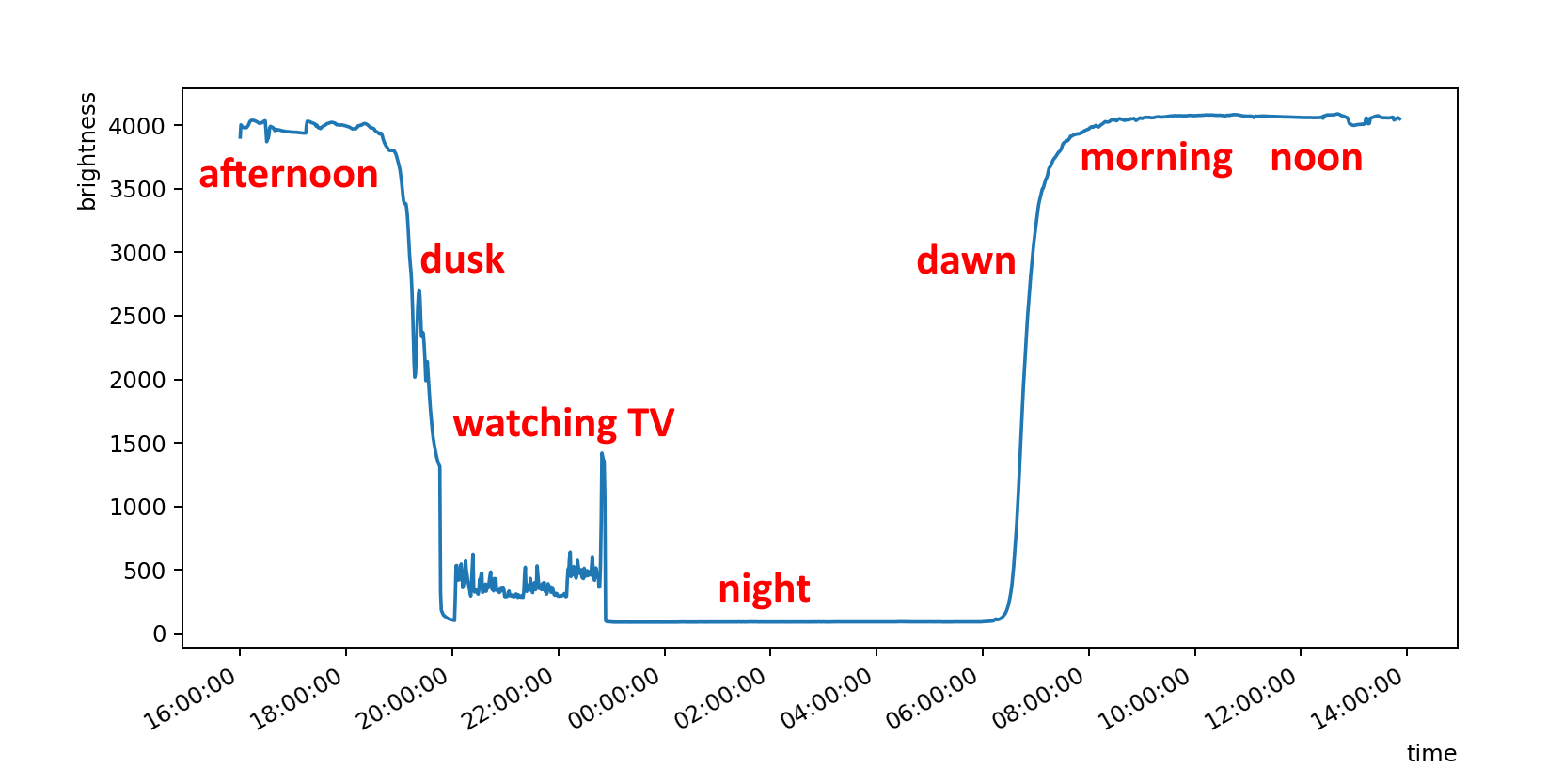Compared with other micro controllers, the power consumption of a Pico RP2040 processor
in sleep mode is relatively high. In sleep mode with running RTC at 3 V it is about 1.2 mA
(without pin change wake up), against some uA as for example an AVR controller consumes.
Despite that, dependent on the sample interval, two or three alkaline batteries (~2.800 mAh)
in series may endure some month. This seems sufficient reason to use the Pico and its ample
flash for logging tasks.
To handle sampling, dumping, visualization and settings, the attached python script is useful.

Visualization of the voltage on a LDR-R series connection from afternoon to next day noon
-> python script
- plug in Pico and retrieve used COM port in device manager (windows)
adapt PORT variable in python script to used COM port
(you may also adapt monitor_port variable in platformio.ini)
- compile and transfer C++ part of picoLog to Pico
or copy ready compiled .uf2 file via explorer (windows) to Pico
run python script and choose
1 set date date and time of sampling (default 01.01.2022 00:00:00)
2 set intervals time between samples from 5 s up to 24 h (default 15 s)
3 set append ON samples are appended to existing ones (default OFF)
OFF old samples are discarded
settings are stored in Pico flash, time, date, interval and number of samples are copied
to the end of dump files on PC
run python script and choose
s sample starts sampling, see also point Safe Stop
the standard LED on Pico will flash on every sample
to stop sampling press RESET on Pico
samples are written to flash every minute if interval is below one minute
Pico will not respond to python script until RESET is pressed
if a battery is attached to Pico, you can disconnect the USB cable
after start sampling
start sampling to start sampling without script a battery and START button must be connected
without script see schematic for details, see also point Safe Stop
- start sampling
press START during power up or RESET, after releasing RESET
keep START pressed until LED is blinking fast, now release START
- script control with USB serial
do not press START during power up or RESET
d dump loads samples from Pico and writes them to a file on PC
(see variable DUMPFILE in python script)
before dumping sample some data
v visualize visualizes dumped data from stored file
(see XTICK_ and AVS variables in python script)
before visualizing sample and dump
r remove deletes samples on Pico
settings on Pico and the file on PC are kept
f format deletes samples on Pico
settings on Pico are set to default, the file on PC is kept
a adc shows some current readings from the ADC of Pico
- stop sampling by pressing RESET
- avoid invalid flash writes by pressing RESET between samples
- safe procedure
hold the START button then press RESET
then first release START and then release RESET
-> C++ Source
-> Python Script
-> .uf2 File (compiled)
https://github.com/littlefs-project/littlefs
https://github.com/lurk101/pico-littlefs -> https://github.com/litten2up/pico-littlefs
https://www.heise.de/blog/Sleepy-Pico-ein-Raspberry-Pi-Pico-geht-mit-C-C-schlafen-6046517.html
https://ghubcoder.github.io/posts/awaking-the-pico/
https://code.visualstudio.com/
https://platformio.org/
https://github.com/Wiz-IO/wizio-pico
qrt@qland.de 221112

